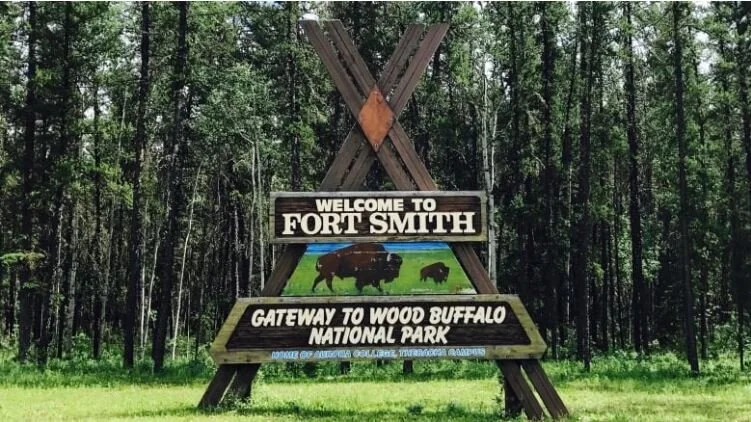Mayor Bill Mauro is making a case for Thunder Bay to host a new federal agency designed to put greater focus on protecting and managing Canada’s water resources. Local leaders say Thunder Bay could be a natural fit for the Canada Water Agency, and tout potential economic benefits for the city. There are no clear answers yet, however, on when or how the government will select a home for the organization – and the city will face competition. This week, Mauro advised city council he intended to throw the city’s hat in the ring, saying he had reached out to local MPs for their support. Both said they’ll be happy to comply.
First Nations gear up to fight Ottawa for shutting them out in coal-mine rulings
In its June 17 decision, the joint review panel said the mine’s likely selenium impacts posed too great a risk to southern Alberta’s water supply. It specifically cited the headwaters of the Oldman River in southern Alberta, which flows east from the Rocky Mountains and eventually joins up with the Bow River to form the South Saskatchewan River.
Canada Water Agency could bring jobs, investments to the Sault
In Sept. 2020, Ward 5 Coun. Corey Gardi was watching Governor-General Julie Payette read the Speech from the Throne. The former astronaut announced the Government’s plans to establish a Canada-wide agency to manage the country’s water bodies and keep them clean and safe. Upon hearing this, Gardi immediately thought Sault Ste. Marie would be a good fit for this agency. The Canada Water Agency will be a hub for water research and management. It will create a central place to deal with climate change effects on oceans, water scarcity, and shared waters with the United States.
Opinion: Indigenous-led conservation the key to sustainable development
Canada’s economy is showing early signs of recovery. The labour market is expanding, government leaders are preparing to release the first federal budget in two years, and companies are identifying post-pandemic investment strategies. In this still-tentative time, some people will claim that a full recovery requires trade-offs. They will say we must prioritize jobs over the environment, industry over Indigenous Nations, and short-term growth over lasting climate solutions. But those are false choices.
Manitoba opens funding taps for water projects
Almost $50 million will be poured into water projects by the Province of Manitoba. Officials announced Manitoba will invest nearly $50 million in critical water and wastewater services projects under the Manitoba Restart Program “These projects are significant capital works that support the ongoing supply of clean water and wastewater treatment in our municipalities and parks,” said Derek Johnson, municipal relations minister, in a statement. “Our government is committed to growing Manitoba’s economy and protecting Manitobans, and these investments will help create jobs and improve the safety and well-being of our communities.”
Powell River City Council restricts water bottling
City of Powell River Council passed a bylaw that prohibits bottling of most water within city limits. At the March 4 city council meeting, council approved an amendment to the city’s zoning bylaw, which will prohibit the bottling of water or other beverages where the source of the water is other than the municipal water supply supplied directly to the property on which the bottling is taking place. This would allow continued local bottling of water for large jugs commonly used in water coolers, which is bottled by several local businesses.
Water treatment plant to be completed on First Nation in northern Ontario next year
Batchewana First Nation members have received some welcome news. It was announced this past week that a ground-breaking ceremony was staged for a water treatment plant expected to be fully functional on the First Nation in northern Ontario by the end of 2021. “They’re happy,” Chief Dean Sayers said of the Batchewana First Nation members who will have access to clean drinking water in their homes.
Alberta government wants to rewrite the water use rules along eastern slopes of Rockies
The Alberta government wants to rewrite the rules on water use along the eastern slopes of the Rockies as part of its economic recovery plan, including a push for new coal developments in the area. Water use is highly restricted in southern Alberta due to concerns about supply, and new water licences cannot be issued, they have to be purchased from existing licence holders on the open market. The new plan put forward by the Alberta government would affect water pulled from the Oldman watershed above the dam.
A Mi’kmaq community’s fears of toxic water recede as Northern Pulp mill winds down
For decades, Pictou Landing First Nation has lived uneasily near an industrial plant emitting brown, foul-smelling waste and the effluent treatment facility they say causes respiratory and skin illnesses. Now, the mill is being mothballed. Ms. Francis, a member of Pictou Landing First Nation, fought for years to stop toxic wastewater from the Northern Pulp plant from being pumped into a tidal estuary next to her community. After decades of court battles, environmental studies and protests, people on the Nova Scotia reserve are hopeful they may one day be able trust their water and land again.
Smith's Landing First Nation asks N.W.T. to speak out against northern Alberta mine
The chief of Smith's Landing First Nation near Fort Smith, N.W.T, is calling on the territorial government to speak out against a northern Alberta mining project. "The government of the Northwest Territories is strangely silent … on the oil sands projects," Chief Gerry Cheezie said. Cheezie said that N.W.T. Premier Caroline Cochrane should be hosting meetings with Prime Minister Justin Trudeau and Alberta Premier Jason Kenney to make sure the Indigenous communities living within the Mackenzie water system will not be affected by the controversial $20.6 billion Teck Frontier mining project that is proposed for a site 110 kilometres north of Fort McMurray, Alta.











